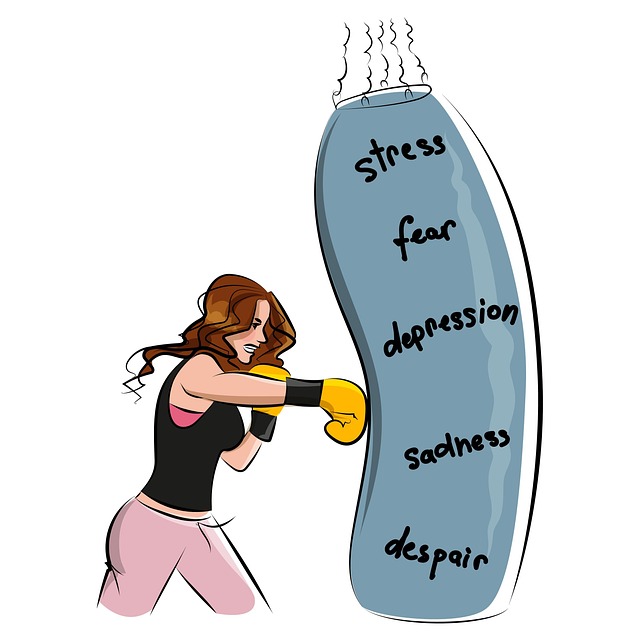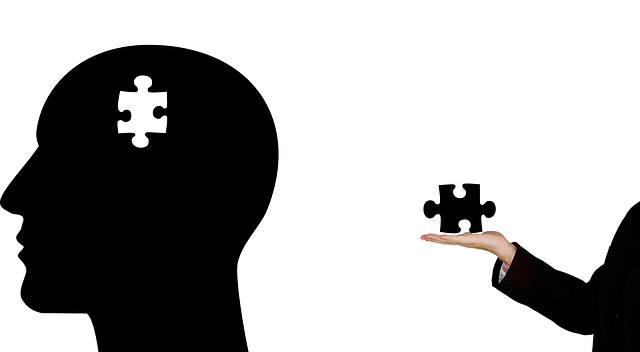The text highlights the detrimental impact of stigma on mental health, delaying access to critical care like that offered by Wheat Ridge Men's Issues Therapy. It emphasizes the importance of Mental Health Awareness, cultural sensitivity in therapy, education, community engagement, and systemic changes to reduce stigma. Specifically, it showcases how Wheat Ridge Mens Issues Therapy fosters open conversations, provides supportive environments, and prioritizes staff well-being to encourage men to seek help for their mental health, ultimately normalizing conversations around mental illness and promoting improved anxiety relief.
Mental illness stigma remains a significant barrier to seeking help, yet reduction efforts are gaining traction. This article explores various strategies aimed at breaking down the walls of stigma, from understanding its profound impact on mental health-seeking behaviors to creating safe spaces like Wheat Ridge Men’s Issues Therapy. We delve into education as a powerful tool for myth-busting and awareness promotion, community engagement fostering supportive recovery networks, and policy changes advocating for equal access to mental health services.
- Understanding Stigma: Its Impact on Mental Health Seeking Behaviour
- Wheat Ridge Mens Issues Therapy: A Safe Space for Open Conversations
- Education as a Tool: Debunking Myths and Promoting Awareness
- Community Engagement: Fostering Supportive Networks for Recovery
- Policy Changes: Advocating for Equal Access to Mental Health Services
Understanding Stigma: Its Impact on Mental Health Seeking Behaviour

Stigma surrounding mental illness is a significant barrier to individuals seeking help for their well-being. This societal perception often leads many to hide their struggles, fearing judgment and discrimination. The impact can be profound, causing delayed access to critical care and supportive services, such as Wheat Ridge Mens Issues Therapy. When left unaddressed, this stigma exacerbates the challenges faced by those dealing with mental health issues, potentially resulting in worsened symptoms and decreased quality of life.
Understanding the consequences of stigma is essential for fostering Mental Health Awareness. By promoting positive thinking and encouraging open conversations, we can create an environment where individuals feel comfortable discussing their experiences without fear of rejection. This shift requires Cultural Sensitivity in Mental Healthcare Practice, ensuring that support systems are accessible, empathetic, and tailored to diverse cultural backgrounds, ultimately reducing the stigma and enhancing overall mental health-seeking behaviors.
Wheat Ridge Mens Issues Therapy: A Safe Space for Open Conversations

Wheat Ridge Mens Issues Therapy stands as a beacon of hope and understanding, offering a safe haven where men can openly discuss their struggles without fear of judgment. This therapeutic space prioritizes creating an environment that fosters trust and encourages vulnerability—essential elements for effective healing. Here, compassion cultivation practices play a pivotal role in building strong connections between clients and therapists, breaking down the barriers often associated with mental illness.
By integrating burnout prevention strategies for healthcare providers, Wheat Ridge ensures that its staff remains equipped to handle complex cases with empathy and resilience. This not only benefits the therapists but also translates into more compassionate and culturally sensitive mental healthcare practices. The center’s approach acknowledges the unique challenges men face in expressing their emotions and seeking help, making it a groundbreaking initiative in navigating Cultural Sensitivity in Mental Healthcare Practice.
Education as a Tool: Debunking Myths and Promoting Awareness

Education plays a pivotal role in breaking down the stigma surrounding mental illness, particularly for men seeking help at centers like Wheat Ridge Mens Issues Therapy. By implementing programs that focus on raising awareness and debunking prevalent myths, institutions can foster an environment of understanding and compassion. Educating both the general public and healthcare providers is essential to reducing the stigma associated with mental health struggles.
One effective strategy is to highlight the fact that mental illness is a common human experience, affecting millions worldwide. Debunking myths about its causes and treatments empowers individuals to recognize their symptoms without fear of judgment. Moreover, teaching self-care practices and burnout prevention strategies for healthcare providers can help them offer more empathetic support. This, in turn, encourages men to prioritize their mental well-being and seek professional assistance, just like they would for physical health issues, ultimately leading to improved anxiety relief.
Community Engagement: Fostering Supportive Networks for Recovery

In reducing the stigma surrounding mental illness, community engagement plays a pivotal role. Initiatives like the Community Outreach Program Implementation can foster inclusive environments where individuals struggling with their mental health feel understood and supported. By bringing people together, these programs create networks of care that promote open conversations about mental wellness. The focus is on breaking down barriers and encouraging those seeking help to access services without fear of judgment, a significant step towards normalizing conversations around mental illness.
Wheat Ridge Mens Issues Therapy, for instance, has pioneered several Mental Wellness Coaching Programs Development tailored to address specific challenges faced by men. These programs not only offer therapeutic support but also educate community members on recognizing and supporting individuals with anxiety relief needs. Through such collaborative efforts, communities can become more equipped to handle mental health issues, ensuring that everyone has access to the care they need for a healthier, happier life.
Policy Changes: Advocating for Equal Access to Mental Health Services

Mental illness stigma reduction requires systemic changes, and one significant aspect is advocating for equal access to mental health services. Policy changes play a pivotal role in ensuring that individuals seeking support, including those at Wheat Ridge Mens Issues Therapy, can receive quality care without barriers. This involves pushing for insurance coverage that recognizes the importance of therapy and counseling as essential components of overall health.
By implementing policies that prioritize mental well-being, we can foster an environment where self-care practices and resilience building are encouraged. Risk Management Planning for Mental Health Professionals also becomes more accessible, allowing therapists to better support clients while mitigating potential risks. Such efforts contribute to breaking down the barriers that have historically excluded many from much-needed care, ultimately reducing the stigma surrounding mental health issues.
Mental illness stigma reduction is a multifaceted approach, as demonstrated by initiatives like Wheat Ridge Men’s Issues Therapy, which creates safe spaces for open conversations. Through education and community engagement, we can debunk myths and foster supportive networks. Policy changes advocating for equal access to mental health services are also crucial. By combining these efforts, we can significantly enhance mental health-seeking behaviors and promote a more inclusive society where everyone has the chance to recover and thrive.














